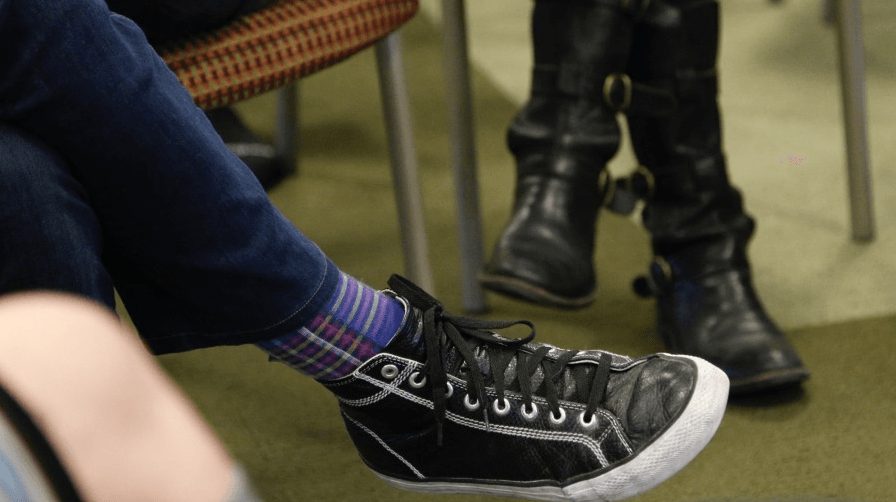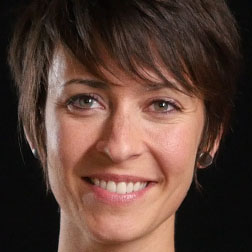What is the difference between team coaching and facilitation?
A little background….
Atta Emami and I have been in a conversation about the difference between Team Coaching vs. Facilitation. We’ve started to explore what you do as an Executive Coach for a team vs. a Facilitator for a team, and we thought it would be valuable to share this inquiry and invite more points of view.
Clients or prospects frequently ask him “what the difference is between #teamcoaching and #facilitation“?
And, as a seasoned professional and a holder of the two premiere certifications Integral Coach Canada and Integral Facilitator, Atta has a high level of demonstrated competence to offer in either role.
This is an interesting question – and I have been mulling over this for a while now.
I thought it might be a simple task to dive into: 1) How are they the same? And 2) How are they different?
And the more I think about my own experience, the more I realize it’s a nuanced question that calls for a more nuanced answer.
What makes them the same? Both have potential to cultivate a more radically people-centered team and organization. Both are from the domain of #facilitativeleadership – where you find leadership, coaching, facilitation, and mentoring.
Now, what makes them distinct from each other?
The difference between facilitation and team coaching is realized based on where you place your attention. When you have advanced competencies in both of these disciplines, you will shift your attention and make powerful interventions as conditions change. The core of what you are bringing is your ‘self as instrument’, your facilitative leadership, which is not constrained within a role.
Note: #situationalflexibility is not so easy if you are just entering one of these disciplines. The need for more situational flexibility tends to be a driver for those seeking continued growth and more integrated development, especially at executive and enterprise levels. This was true in my own experience, which is in part, why I was inspired to create the Integral Facilitator pathway.
Let’s look at each one of these roles, in turn.
FACILITATOR
Facilitation’s latin root is “to make easy” – and it is usually practiced in a collective group setting, and not only in a team. As “the facilitator” you are acting primarily to ‘make easy’ the group’s experience as it accomplishes its intention together, e.g. intentions may include:
- Encourage full participation of the group in creating a plan
- Engage all voices in a conversation about shared values
- Deepen a group’s sensemaking about a rapidly changing marketplace
- Make it more palatable to have tough conversations and reflective process about how we are performing as a team and identify possible changes
When you are in the facilitation role, you take note of the system context within which the conversation is taking place, the content (information at hand and the discourse), the flow of the conversations and the group dynamics, including participation / withdrawal, shared understanding, effective communications and conflict.
Measurable impacts are mostly related to the shared outcomes from the facilitated session, i.e. the event in time.
What is in the mind of the facilitator – what ‘objects’ are in your awareness?
- How are we doing in terms of our shared intention and agenda?
- Does the process need adjustments? Do we have the right people here?
- Does everyone have equitable ways of contributing?
- Does the available energy support the task?
- Are the outcomes we have now sufficient or is there more territory to cover?
And the more masterful facilitators will also be guided by their own refined ‘self as instrument’.
Looking at the second role, what distinctions are helpful for you?
TEAM COACH
Team coaching is generally seen as an assistive role to bring to light and encourage higher levels of team performance to ensure the team achieves its intention.
When you are acting primarily as a team coach your intention is to ensure the team members and the team as a whole is functioning and performing well, and growing in line with its core purpose and intention, e.g. you:
- Assess the team’s performance (knowledge about the science of team performance, psychometrics and assessment tools)
- Heighten the team’s self-awareness and sense of identity as a team
- Help the team address what it needs as inputs and process to do its work together
- Tough conversations and reflective process about how we are performing as a team and possible changes
- Grow more skillful interrelationships, identity and efficacy as a well-functioning and thriving team.
Measurable impacts are related to the change in performance of the team and the team members. For example, the growth or change goals for the team might include increasing the degree of candor in the team member’s communication, developing more compassion and empathy for each other, or cultivating more appropriate use of or sharing of power.
In contrast to facilitation, team coaching has a more focus on HOW the group is doing and on developing what’s needed to improve it’s performance. Team coaching can include some facilitative injunctions that help make the groups process easy, but it’s value is delivered through more direct levers for team performance.
What is in the mind of the team coach – what ‘objects’ are in you awareness?
- What stage of development is the team in now, and what is the growing edge of the team’s performance?
- How does this team fit in the larger system and across boundaries?
- What unseen habits or behavioral patterns are getting in the way?
- How can I provide grounded observations and suggest and invite more adaptive ways of teaming?
- What skill development could have a positive impact right now?
- What stretch or challenge can provide the possibility for a breakthrough or new ways of being together?
So I find, even after spelling this out, the answer to the question is still somewhat nuanced because …
Team coaches can be facilitative and attend to the process & facilitators can offer grounded observations and challenge the team they are facilitating.
The key is “how I see the world” – my worldview influences my answer to the question about what is the difference between facilitator and team coach, and also how I create value with my own clients/teams with the competencies I have available.
When speaking with incoming learners in our certification program, I sometimes say “you are entering the domain of ‘post professional practice’ where your contributions, your leadership, transcends and includes various identities, roles and methodologies that got you here“.
With my clients who are curious about the roles, team coach and facilitator, I first try to understand why they have this question. What is their orientation to these roles and what have they experienced in the past? I am curious about any biases or judgements that might be present and am listening to see if they are informed or perhaps need more concrete examples.
For more informed clients, I might share these kinds of examples to illustrate the point:
- As an integral facilitator – my tendency is to see the process and the system, and the interplay of relationships and culture. I see hidden dynamics in individuals and culture and can bring them to the surface.
- As an educator and coach – my tendency is to see the underlying competencies, gaps, stuck points, and skilful means. I can offer in the moment mentoring and skills coaching.
- As a strategist – my tendency is to see the degree of coherence and alignment in the group’s vision, direction, conceptualization of what is needed and commitment to move forward together.
- As an integral thinker and adult developmental practitioner – my tendency is to see the evolutionary potential and how increasing growth and vertical development can create ever increasing spirals of influence and impact for clients. If desired, I can partner with them in a developmental way.
Making it easy and helping people perform better for the sake of their shared intention, shared mission and ongoing performance are shared concerns of both roles. Advanced facilitative leadership is a highly skilled, flexible and adaptive way to partner with, to create value and to serve executives and their teams (and your OWN organization).
What I focus on and bring to the foreground is guided by what my agreement is with the client, team or organization. And as the reality of each moment shifts and changes, my best response will be to meet that in what ever skillful means I possess – beyond the constraints of the role – that serves the intention.
The more one grows ones “self as instrument” (growth in a vertical sense – of one’s own maturity and worldview, and by expanding one’s range of skillful interventions and competencies), the more one can be ready to offer any and all of these valued contributions.
And at the end of the day, that is exactly what is needed by your clients and teams.
If you are interested in how to bring more value as a #facilitativeleader, and pursue a path that will deepen your adaptive capacity in facilitation, leadership, coaching or mentoring, please reach out. I’d love to hear about your #intention.


